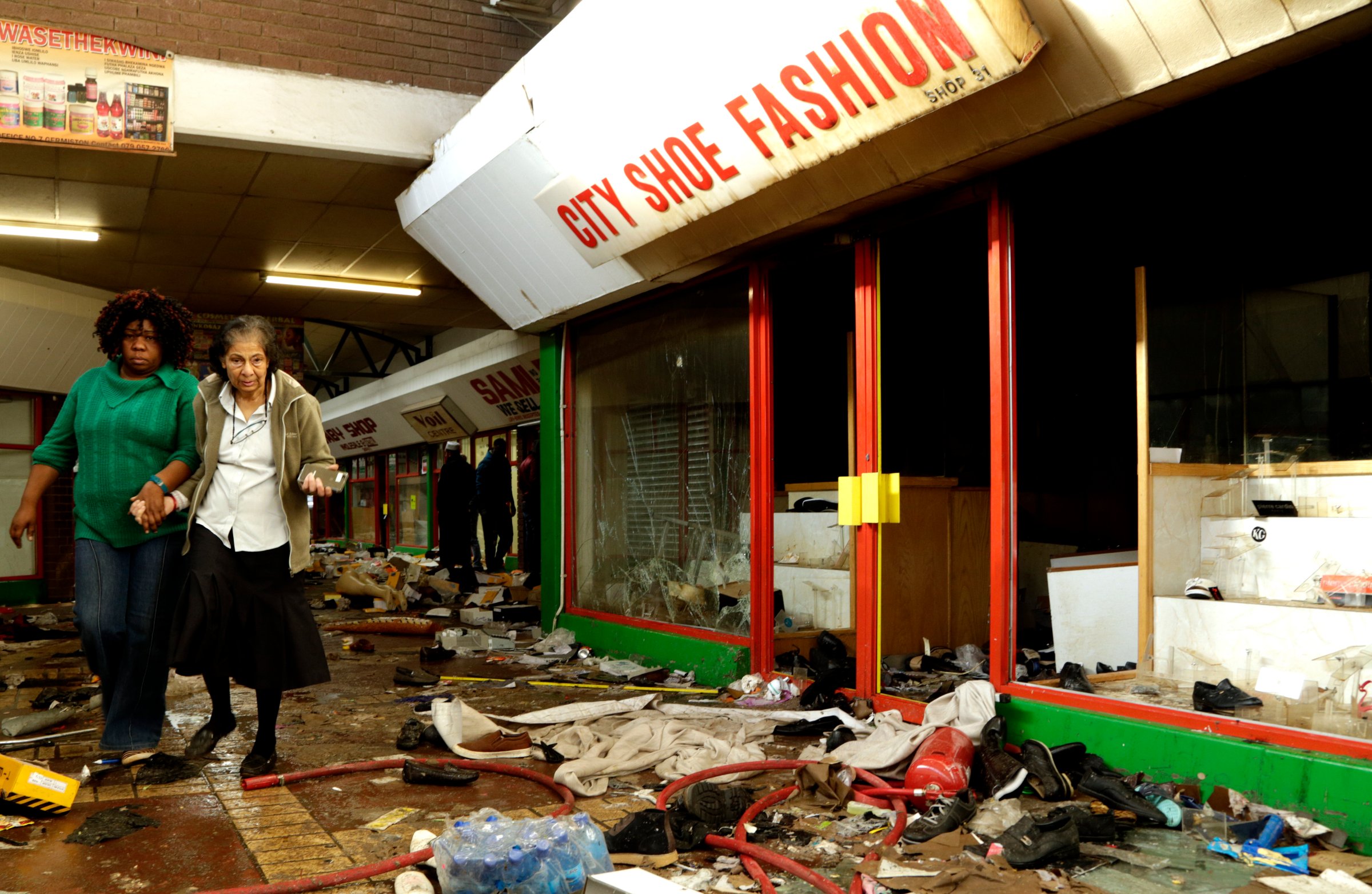
Violent riots broke out in South Africa’s largest city and commercial capital, Johannesburg, with mobs targeting foreign-owned shops and stores. Many South African workers resent the influx of foreigners, particularly those coming from other parts of Africa, out of fear that they are taking jobs away from them. Matters were compounded by the spread of fake news and images claiming that Nigerians were targeted in the attacks, inciting mobs in Nigeria to attack South African-owned businesses in reprisal. While the death toll in South Africa has reached double-digits, it does not appear that any Nigerians were among the casualties.
Violence has also flared in other African countries in response to the developments in South Africa. Boycotts have begun against South Africa by sports teams (Zambia withdrew from a friendly football match that was to have taken place against South Africa over the coming weekend) as well as musicians.
Why It Matters:
Violence against foreigners is not new to South Africa, but this week’s scenes were reminiscent of the countrywide xenophobic violence of 2008 that brought the honeymoon phase of a post-apartheid South Africa to an abrupt end. Similar attacks have taken place in recent weeks and months with working class African immigrants being the primary targets of the violence, prompting African governments in the region to condemn South Africa and its president, Cyril Ramaphosa, for their inability to stabilize the situation.
For Ramaphosa the timing could not have been worse as the country hosts the annual World Economic Forum meeting on Africa this week in Cape Town. Visiting investors—whom Ramaphosa is desperately wooing in an attempt to revive the sluggish economy—will struggle to believe his pitch that his country has put the volatile years of his predecessor, Jacob Zuma, behind it. Delegations from Rwanda (which is vying to replace South Africa’s position as the preferred destination for Western investment on the continent), Malawi and the Democratic Republic of Congo withdrew their participation in the meeting. Nigeria, which is also rivaling South Africa for the position as the largest economy on the continent, is supporting the efforts of a Nigerian airline to evacuate Nigerian citizens out of South Africa for free. The violence is bad enough, and the political maneuvering makes matters worse. So is the fake news that is inflaming tempers across the continent. It is a combustible situation.
What Happens Next:
South Africa will continue to attract immigrants from across the continent to its shores, and to its cities in particular, given that its level of economic development is unrivaled in Africa and immigrants tend to thrive in the informal retail sector. But despite South Africa offering many people better economic opportunities than they tend to have in their home countries, the country’s overall economic malaise is set to continue; GDP growth continues to be outstripped by population growth rate, which translates into a real decline of GDP per capita. Unemployment is also the highest in a decade—far higher among the youth population—and is combined with inequality rates that are the highest in the world. Given that some politicians are willing to incite xenophobia for political gain (as has happened under the current mayor of Johannesburg) and that isolated incidents of crime by foreigners have the potential to fuel vigilantism by locals (and that’s before factoring the ability of technology to spread the violence across borders near-instantaneously), attacks like these are likely to increase.
The Key Statistic That Explains It:
29%: The unemployment rate in the country is 29 percent, which is the highest recorded figure in more than a decade. When nearly 1 in 3 people in the country don’t have formal jobs, it doesn’t take much to light the fuse of aggrievement.
The One Misconception About It:
That xenophobia is South Africa’s only problem, or (arguably) even its biggest one: violence against women in the country is so widespread that thousands of women marched against the government in Cape Town this week to protest politicians’ failure to protect women from increasing levels of violence. According to The Guardian, this past August was “the most deadly month for violent crimes against women the country has ever seen.”
The One Thing to Say About It at a Dinner Party:
When Ramaphosa finally displaced Zuma as president of South Africa in 2018, there was hope that better days were ahead for the country. A couple of years later, it’s clear that South Africa’s problems run much deeper than can be addressed by any one person. Ramaphosa needs to improve South Africa’s economy to help prevent these types of events in the future, but events like these scare off the precise type of investors he needs to improve the country’s economy. It’s a vicious circle, and he has yet to prove the political talent to break it; the next few months will be critical towards figuring out what kind of leader he really is, and whether he can deliver on the promise South Africans desperately need him to.
More Must-Reads from TIME
- Cybersecurity Experts Are Sounding the Alarm on DOGE
- Meet the 2025 Women of the Year
- The Harsh Truth About Disability Inclusion
- Why Do More Young Adults Have Cancer?
- Colman Domingo Leads With Radical Love
- How to Get Better at Doing Things Alone
- Michelle Zauner Stares Down the Darkness
Contact us at letters@time.com